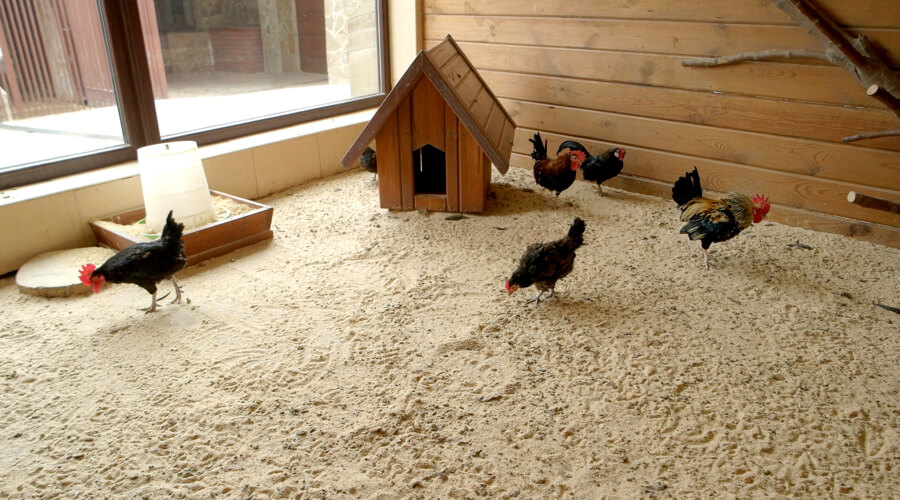When it comes to raising chickens, understanding the egg laying frequency by age is crucial for every poultry enthusiast. Chickens are fascinating creatures with unique attributes that vary significantly as they grow. Knowing how age affects their egg production can enhance your management practices and overall success in poultry farming.

Why Study Egg Laying Patterns?
Having detailed knowledge of egg laying patterns can help chicken keepers optimize their flock’s productivity. By observing these patterns, owners can ensure their birds are happy and healthy and that they receive the appropriate nutrition and care for their specific life stage. Additionally, it allows for informed decisions regarding breeding, flock size, and replacement needs.
Chickens and Their Lifecycle
Chickens have distinct lifecycle stages, each affecting their egg laying frequency. Understanding these phases helps chicken enthusiasts anticipate and plan for fluctuations in egg production.
1. The Chick Stage
Chicks are typically between 0-6 months old and are still growing and developing during this period. They do not lay eggs yet, but this stage is critical for establishing a healthy foundation for future egg production.
2. The Pullet Stage
Young hens, known as pullets, begin to lay eggs at about 18-22 weeks of age. At this stage, they are generally smaller in size and may lay irregularly initially. Their bodies are adjusting to becoming efficient egg layers.
3. The Peak Laying Period
This stage, occurring between 6 months to 2 years, is when chickens are most productive. During this time, a well-managed flock can produce an impressive number of eggs. On average, a healthy hen can lay between 250 to 300 eggs annually.
Factors Affecting Egg Production
Genetic Factors
A hen’s heritage plays a significant role in her ability to lay eggs. Different breeds have varying reputations for egg production. For those just beginning their poultry journey, researching different breeds is essential.
Environmental Conditions
Environmental conditions such as light, temperature, and housing significantly impact egg production. According to Daylight Effects, extended daylight stimulates higher egg production, while extreme temperatures can disrupt laying patterns.
Nutritional Needs
Nutritional deficiencies can profoundly affect a hen’s health and her capacity to lay eggs. Proper diet management is crucial during each lifecycle stage. Providing a high-quality feed designed for egg-layers ensures that hens have the necessary nutrients to sustain healthy egg production.
Healthcare and Disease Prevention
Healthy chickens are more productive. Implementing effective care routines and regular veterinary check-ups prevent diseases that could interfere with egg production.
How Age Impacts Egg Quality
The quality of eggs is also impacted by a hen’s age. As hens age, the size of the eggs they lay may increase, but the shell quality might decrease. Ensuring a balanced diet and proper care can mitigate these effects.
Managing Egg Production in Older Hens
As chickens age beyond their prime laying period, their egg production decreases. Management practices must adapt when dealing with older hens to maintain flock health and productivity.
Feeding Adjustments
Older hens may require dietary adjustments to support their changing nutritional needs. A diet rich in calcium and other essential minerals helps sustain what remains of their laying potential.
Regular Health Checks
Older hens are more susceptible to health issues. Regular health checks and appropriate veterinary care can extend their productive years.
Conclusion
Understanding the egg laying frequency by age is essential for effective chicken management. It empowers chicken keepers to optimize their flock’s productivity and maintain the overall health of their birds.
Further Resources
For more on the science behind egg production, you can visit this Egg Production Guide. Additionally, explore our article on preserving eggs to maximize the benefits of your flock’s productivity.

FAQs
1. What age do chickens start laying eggs?
Chickens generally begin laying eggs at around 18-22 weeks of age.
2. How does lighting affect egg production?
Daylight exposure significantly impacts egg production, with more daylight promoting higher laying frequencies.
3. Can diet affect egg production in older hens?
Yes, dietary adjustments are often necessary for older hens to support their changing nutritional needs and sustain their laying potential.
This article contains affiliate links. We may earn a commission at no extra cost to you.









